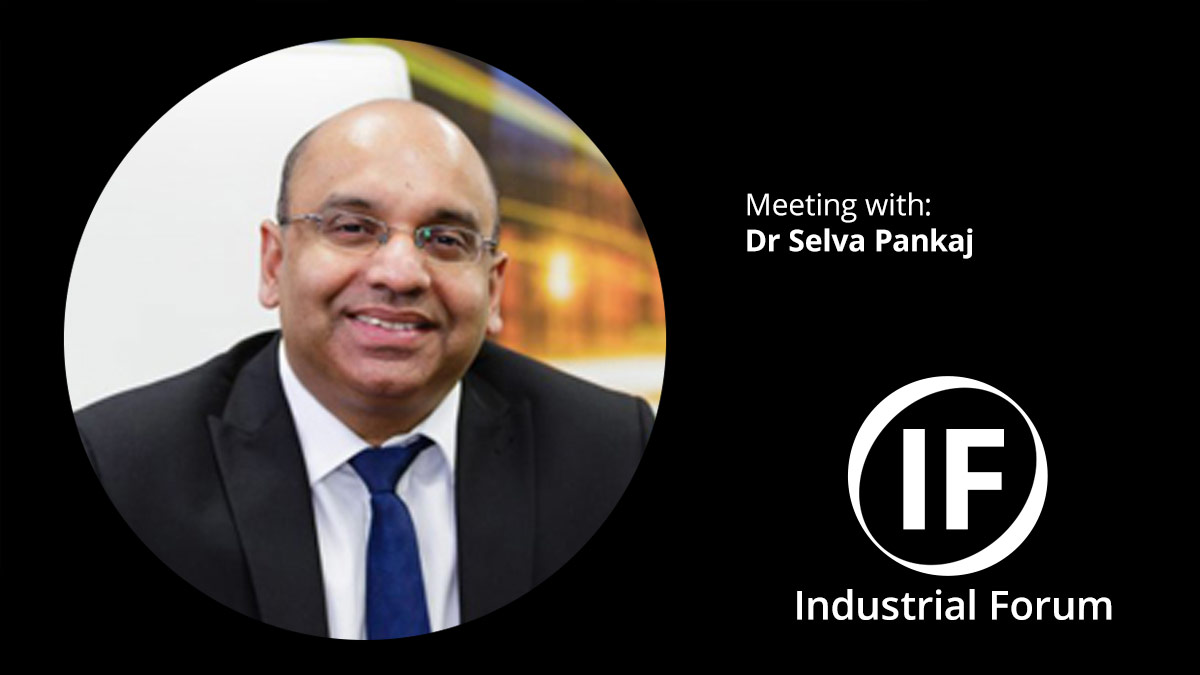Since 2009, Dr Pankaj has been CEO of Regent Group, a diverse educational group based in London with several business interests in the UK, US, Canada, Dubai and India.
From humble beginnings to a global education pioneer, Dr. Selva Pankaj’s journey is a testament to the transformative power of learning and perseverance.
He is a chartered accountant and holds an MBA and has been elected as a Fellow of the Royal Society of Arts (FRSA). As part of his executive education, he went to London Business School followed by Harvard Business School.
Before his career in education launched, Selva had an enviable career in the City between 1994-2008 working in the investment banking and fund management sector for a number of well-known organisations including Pricoa, Rockspring, Fortress with a Joint Venture relationship with Goldman Sachs and Prudential Financial Inc amongst others.
In early 2009 Selva stepped down from his role as Executive Vice-President at Fortress Investment Group to become Regent Group CEO. Initially, including just one tuition centre, a small independent school and a nursery, the Group has enjoyed impressive growth and now turnover stands at £12m + compared to £1m ten years ago.
We met him and asked the following questions:
Can you explain why IF is the best-emerging forum for UK industrialists?
IF brings together entrepreneurs and business people from across the UK. Working together we can achieve more; IF gives us a forum to collaborate and support each other through networking events and conferences and by sharing resources. By bringing together leaders from across industries, IF enables us to learn from our peers in different sectors.
I believe that Great Britain has huge potential for growth. We have a history of innovation and, by facilitating collaboration and knowledge exchange, IF supports that innovation and growth. IF members become part of a community determined to strengthen British industry so that it can thrive and deliver a prosperous nation for the future.
IF represents the interests of its members, giving us a greater influence and impact than we could achieve individually. It works to secure the continued global success of British industry.
What are the most pressing Brexit-related difficulties that industrialists are facing in the UK post-Brexit?
At Regent Group we focus on opportunities rather than difficulties. Brexit changed our relationship with members of the EU and there has been a period of adjustment. There’s no doubt that, for some industries, the adjustment has been greater than for others. All have had to look at where they recruit staff from and who they trade with. A key part of Regent Group’s business in the UK is education. Brexit changed the basis on which students from EU member states could study in the UK so we had to assess the impact on our business of that and adapt to mitigate it.
As a business focused on the future, it’s natural that I think there are significant opportunities post-Brexit. There are exciting partnerships to be made in countries outside the EU. Regent Group is exploring opportunities for universities in Asia, the USA and Europe, and our businesses in Dubai and India are going from strength to strength. We’ve found countries that share Regent Group’s values and ambitions outside the EU and I’m excited about the future.
What advice can you offer to businesses to mitigate the consequences of supply chain disruption, labour and skills shortage, and inflation?
Regent Group as a business primarily provides services rather than physical products. However, there are some approaches that are helpful for any business in challenging circumstances.
First, look to innovate. Technology presents us with opportunities to do things differently all the time. We need to think about how our business might operate five, 10, or even 20 years in the future and see how we can get closer to that now. We must focus on our customers, how we can serve them better and where technology can help. From the beginning, Regent College London (RCL) offered students flexible study options; it was an important part of us widening participation to students who were traditionally excluded from higher education. Today we’ve embraced technology to give our students even more flexibility over where and when they learn. Technology is also behind our plans for digital universities and our platform for supporting students 24/7. I am always looking for ways we can use technology to serve better the communities we work with.
Second, educate your team. RCL has always focused not just on outside-in education (teaching students content) but on giving students the skills they need to succeed in the real world (inside-out education). The world is changing fast; enabling people of all ages to develop the ability to learn throughout their lives is essential to training the workforce the UK needs today and in the years to come. Our ethos is that the end result of education is character. All Regent students have access to a suite of transformational educational programmes that focus on the attitudes, skills and approaches that generate success. By focusing on our natural intelligence, we help students to maximise their potential so they can adapt and thrive in a changing world.
Finally, think positive and strive. I feel that Britain talks itself down too often. We must be positive about the great potential Great British business has. Attitude is extremely powerful; we need to set worthy goals, believe we can achieve them and work towards them consistently and with energy. Success takes hard work and effort, but it’s worth it.
Do you believe there are opportunities in the UK’s current fiscal policy that have yet to be explored?
Britain is seen as a leader in many ways: as an entrepreneurial nation with world-class education, for example. British businesses are still very attractive globally. With inflation coming down and reduced national insurance contributions, I hope we’ll see more confidence from UK consumers.
The UK government has identified 4 “Grand Challenges” in its Industrial Strategy, namely: artificial intelligence and big data; clean growth; the future of mobility; and meeting the needs of an ageing society. How can IF contribute to any of these challenges?
Societal changes are best achieved through the public and private sectors working together and IF can be the bridge between industry and government.
AI is of particular interest to Regent Group and I’m keen that we make the most of its potential while championing our unique abilities as humans, i.e., natural intelligence. IF can help Britain lead by bringing industry, universities and policymakers together to innovate and embrace the ethical use of AI. Sustainable growth is of vital importance. As businesses, we are all working towards adopting sustainable practices and technologies. Working together, facilitated by IF, we can identify best practices, develop sustainable approaches and share learning.

